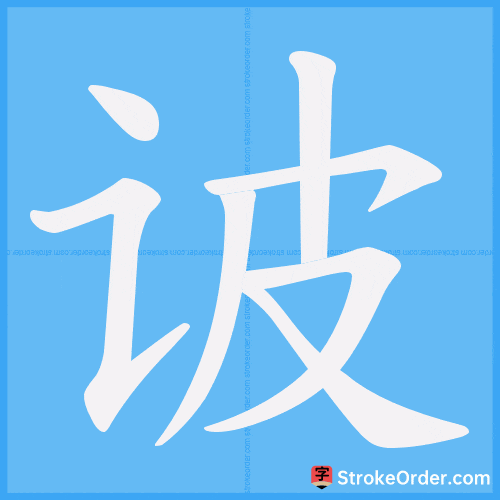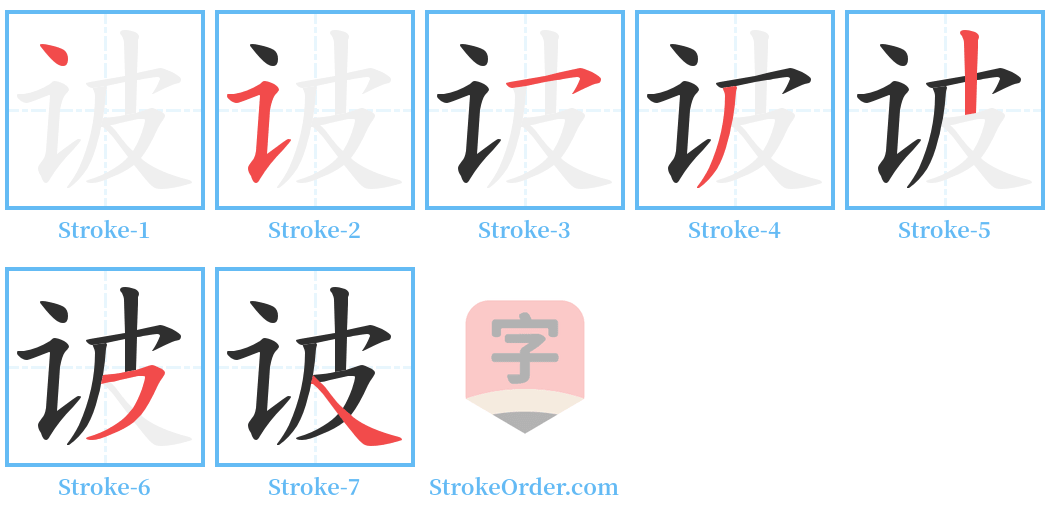诐 Stroke Order
Animated Stroke Order of 诐

Stroke Order Diagrams for 诐

Information of 诐
Pinyin
bì
Radical
讠
Strokes
7 strokes
Usage
★★
Definition
诐 (bì)
1.偏颇,邪僻。
Biased, eccentric.
2. 偏颇,邪僻: ~行。~辞。
Biased, eccentric: biased behavior, eccentric remarks.
3. 同本义 ([En.] argue)
Same as the original meaning. (Argue)
4. 谄媚 ([En.] flatter)
Flattery.
5. 通“颇”(pō)。偏颇,不正 ([En.] biased, biassed)
Alternate form of "偏颇" (pō). Biased, irregular.
6. 引用例子:
1. 《说文》:诐,辩论也。 段玉裁注:“此诐字正义。皮,剥取兽革也。披,析也。凡从皮之字,皆有分析之意,故诐为辩论也。”
"Shuowen": "诐 means to argue." Comment by Duan Yucai: "The character 诐 is justified. '皮' means to peel animal skin. '披' means to analyze. Any character related to 皮 carries the meaning of analysis, thus 诐 means to argue."
7. 引用例子:
2. 《汉书》:险诐阴贼。
"Han Shu": "Dangerous flattery by the hidden thief."
8. 引用例子:
1. 《楚辞·刘向·离世》:不从俗而诐行兮。
"Chuci, Liu Xiang: 'Not following the mundane but acting eccentrically.'"
9. 引用例子:
2. 《孟子·公孙丑上》:诐辞知其所蔽,淫辞知其所陷,邪辞知其所离。
"Mengzi: 'Biased words know their concealment, lewd words know their traps, and wicked words know their separations.'"
10. 例:
又如: 诐行(不正当的行为); 诐辞(偏颇邪僻的言论)
For example: biased behavior (improper behavior); biased remarks (eccentric and biased speech).